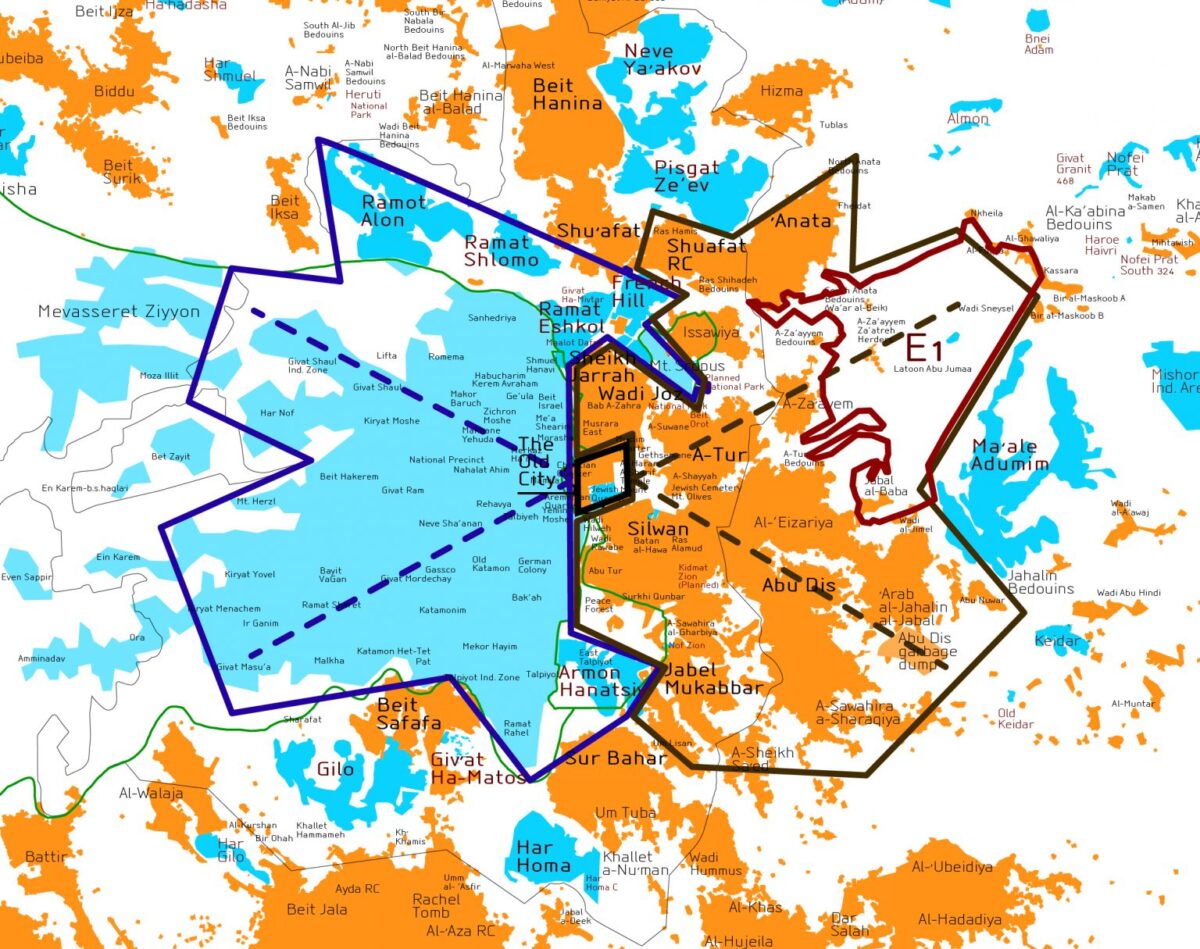In 1999, the Israeli government approved a master plan to build thousands of housing units in the strategically important E-1 area of the West Bank.
Twenty one years on, the ambitious project continues to languish due to the objections of Israel’s chief ally, the United States.
A succession of U.S. presidents have come out against it because it would undermine prospects for a two-state solution, which is already on life support.
As expected, Israeli peace groups have blasted the plan, arguing it would effectively cut off the southern part of the West Bank from the northern section, destroy the possibility of a contiguous Palestinian state, and violate the principles of sound urban planning.
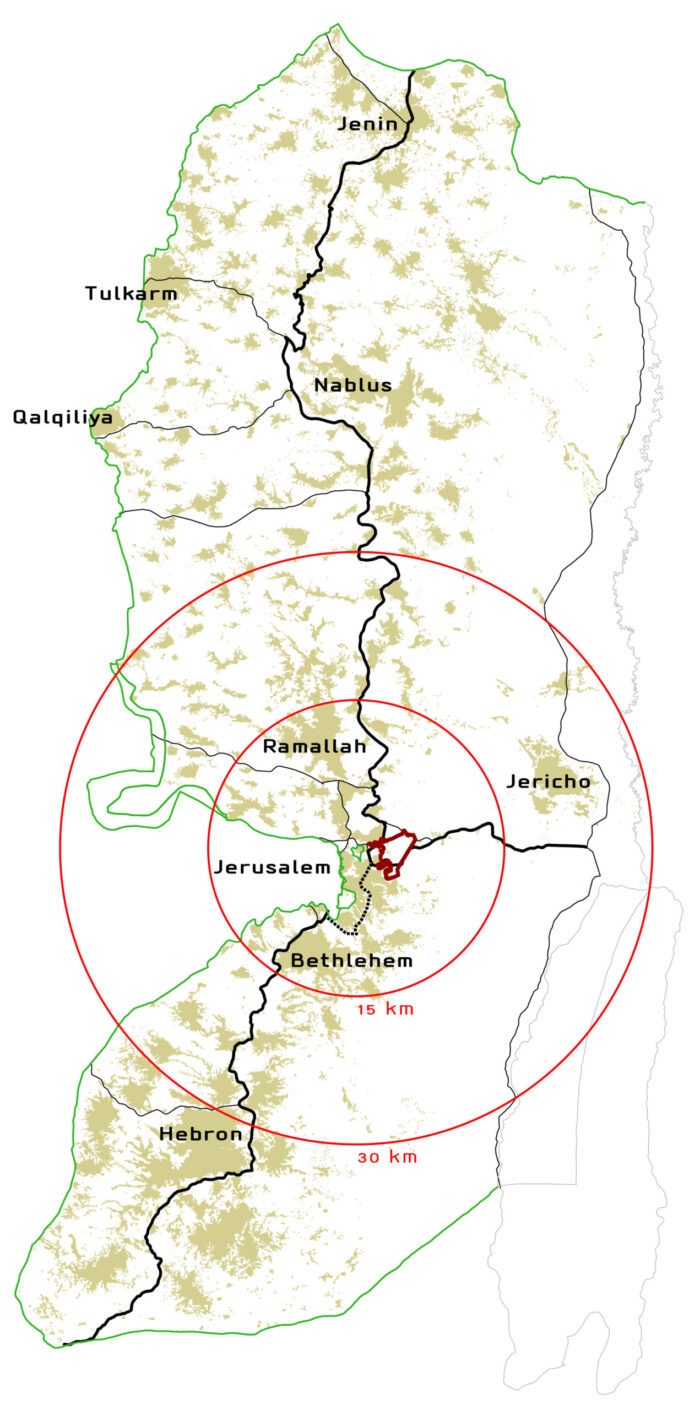
Which is precisely why Peace Now and its partners, Ir Amim and the Association of Environmental Justice in Israel, have criticized the scheme to build about 3,500 residential units in the E-1 area. Their objections were contained in a paper submitted to the Higher Planning Council of the Civil Administration, which is in charge of issuing building permits in the Israeli-occupied West Bank.
Israeli Prime Minister Benjamin Netanyahu presented the plan last February, less than a month after the United States unveiled its Israel-Palestinian peace proposal.
E-1, which stands for East-1, covers some 12 square kilometres of territory, most of which was classified by Israel as state land. Within its boundaries are Ma’ale Adumim — one of the largest settlements — the settlement of Givat Hamatos, and the Palestinian villages and towns of Abu Dis, Al-Tur, Anata and Hizma.
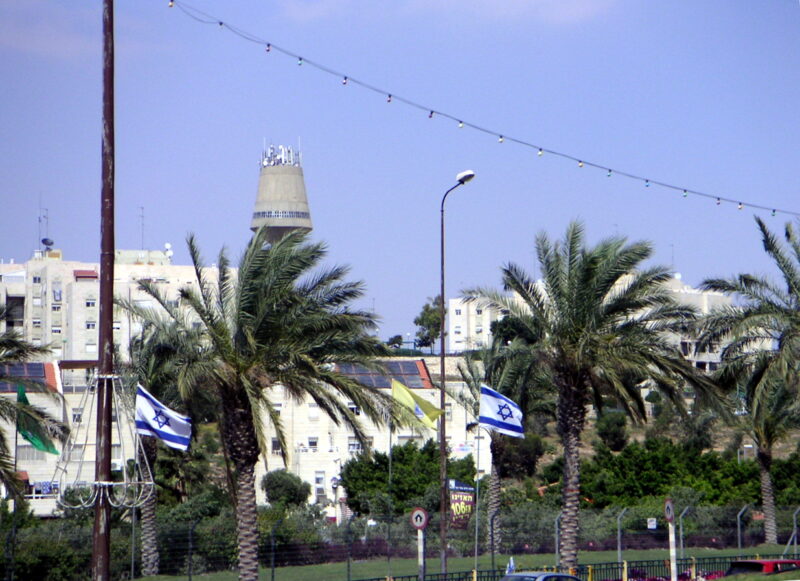
Apart from physically blocking the creation of a viable Palestinian state, the E-1 plan would deprive East Jerusalem, the proposed capital of such an entity, of the land required for its future development, and encircle Abu Dis, Al-Tur, Anata and Hizma.

The Palestinian observer Daoud Kuttub has written that the E-1 plan would create “an urban bloc between Ma’ale Adumim and Jerusalem, exacerbate the isolation of East Jerusalem from the rest of the West Bank, and disrupt the territorial contiguity between the northern and southern parts of the West Bank.”
Netanyahu, an opponent of Palestinian statehood, could well try to implement the E-1 plan to satisfy his own Zionist Revisionist ideological inclinations and to appease one of his key constituencies — the powerful Jewish settlement movement.
Having been forced to suspend his election campaign promise to annex the Jordan Valley and Israeli settlements and outposts in the West Bank so that Israel’s normalization agreement with the United Arab Emirates can be fleshed out, he might offer the E-1 plan as a sop to the angry settlers.
As he said on August 13, the day the accord was announced on Twitter by U.S. President Donald Trump, “There is no change to our plans to apply sovereignty over Judea and Samaria, in coordination with the U.S.”
With the U.S. bent on ensuring that Israel’s historic accord with the United Arab Emirates endures, it’s highly doubtful that the Trump administration would endorse the E-1 plan.
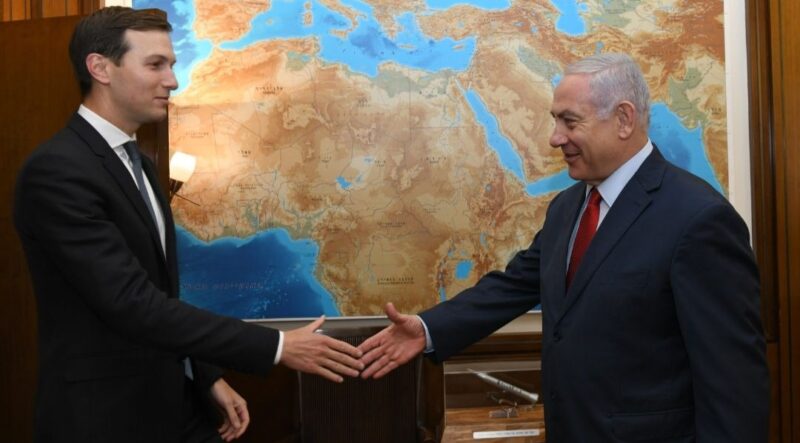
Jared Kushner, Trump’s senior advisor and son-in-law, suggested on August 17 that Israel should not tamper with the status quo in the West Bank, at least for now. This was an implicit reference to U.S. opposition to annexation, even though the American peace proposal explicitly endorses Israel’s annexation of one-third of the West Bank.
In light of Washington’s new position, one can safely assume that the Trump administration would not react favorably to Netanyahu’s E-1 plan.
The European Union is also against it.
On May 1, 11 EU ambassadors demanded a freeze in Israel’s plans to allow construction in Givat Hamatos, which is located in the E-1 area. “Such unilateral steps will harm efforts to renew the peace process and will have grave consequences for regional stability,” they told Anna Azari, a senior Israeli Foreign Ministry official, in a Zoom call.
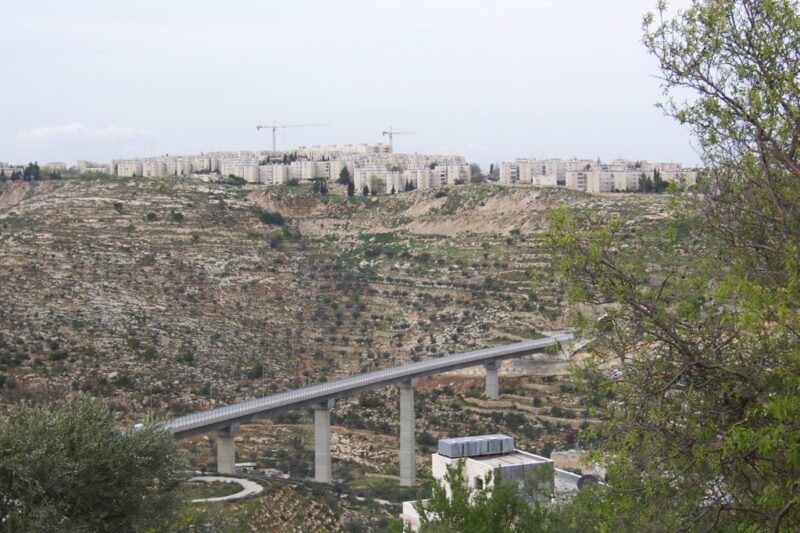
On July 31, the EU attacked the E-1 plan again.
“Settlements are illegal under international humanitarian law,” read an EU protest letter signed by 15 nations. “Any further settlement construction in this strategically sensitive area will have a devastating impact on a contiguous Palestinian state, as well as severely undermine the possibility of a negotiated two-state solution in line with internationally agreed parameters.”
Israel will have to take the concerns of the EU and the United States into serious consideration before it makes any unilateral moves in the E-1 area.
In all probability, the E-1 project will be deferred indefinitely.
